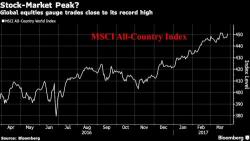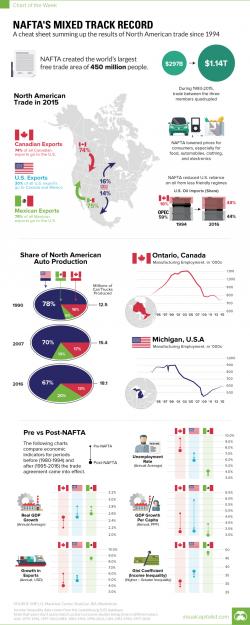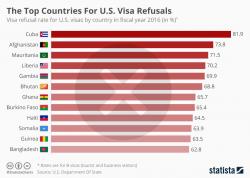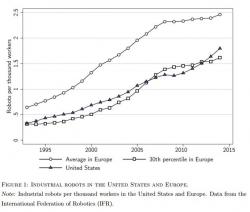Gartman: "We Have No Choice But To Be Bullish Of Equities"
So much flip-flopping from Dennis Gartman in just the past week, it is enough to make one's head spin.
So much flip-flopping from Dennis Gartman in just the past week, it is enough to make one's head spin.

Brexit day has finally arrived, and despite this major "risk event", European and Asian stocks are trading mixed, while S&P futures are just fractionally lower as a bounce on optimism over the American economy appears to have fizzled and President Trump continues to struggle to pass his legislative agenda. The pound first dipped then rose as the U.K. is set to begin its life outside the EU.

On January 1, 1994, the North American Free Trade Agreement (NAFTA) officially came into effect, virtually eliminating all tariffs and trade restrictions between the United States, Canada, and Mexico. As Visual Capitalist's Jeff Desjardins reminds readers:

If you're a Cuban focused on visiting the United States for tourism of business purposes, it's probably going to be a case of "close but no cigar". As Statista's Nial McCarthy notes, even though relations between Washington and Havanna have improved hugely over the past few months, Cuba still has the highest rate of U.S. visa refusal of any country worldwide. According to U.S. State Department data, 81.9 percent of all Cuban applications for B Visas (tourism or business) were turned down in fiscal year 2016.

As Trump gets ready to renegotiate NAFTA and impose tariffs on companies looking to outsource production to Mexico, a new study from MIT and Boston University suggests that industrial robots, not Mexico, may be the bigger factor contributing to the high levels on unemployment in the Midwest.
Entitled "Robots and Jobs: Evidence From US Labor Markets," the authors of the study found that the addition of 1 robot per 1,000 workers results in an 18-35 bps reduction in the employment-to-population ratio and 25-50bps reduction in wages. Per Bloomberg: